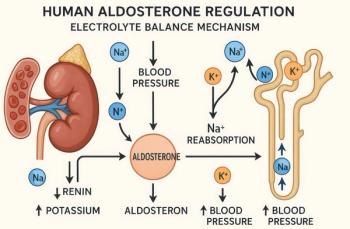
ACNP: Hypertension Drugs May Block Alzheimer's
HOLLYWOOD, Fla. -- Without any fanfare or intention, the use of some drugs for high blood pressure may be silently protecting against Alzheimer's disease, suggest in vitro and animal studies presented here today.
HOLLYWOOD, Fla., Dec. 6 -- Without any fanfare or intention, the use of some drugs for high blood pressure may be silently protecting against Alzheimer's disease, suggest in vitro and animal studies presented here today.
"Conceptually, our studies suggest that people on treatment for hypertension might get a beneficial effect on beta-amyloid (accumulation in the brain)," according to Gulio Maria Pasinetti, M.D., Ph.D., of the Mount Sinai in New York. He reported at the American College of Neuropsychopharmacology meeting.
It's known that people with cardiovascular disease are at higher risk of dementia, but some epidemiological and clinical studies have suggested that treatment with anti-hypertension drugs reduces the risk.
Other studies, however, have shown no benefit, Dr. Pasinetti said, so he and colleagues used a high-throughput screening system to test all anti-hypertensives on the market -- some 55 medications in eight pharmacological classes.
The screening system employed embryonic neuronal cultures from TG2576 mice, which are predisposed to accumulate beta-amyloid in the brain as well as to develop memory and learning deficits as they age.
In the cultures, most of the drugs had little effect, but several showed what Dr. Pasinetti called a "dose-dependent and highly significant decrease in accumulation of A-beta 40 and 42" -- two of the major isoforms of beta-amyloid.
Interestingly, the doses used were well below those commonly used in clinical practice to treat hypertension, he said.
Dr. Pasinetti presented data on three of the drugs -- propranolol (sold under various brand names), Cardene (nicardapine), and Cozaar (losartan) -- that were tested in a short-term dosing study in TG2576 mice.
"We found that in the animals, treated at a concentration approximately threefold lower than commonly prescribed for hypertension, we were still able to decrease by two-fold the level of beta-amyloid in the brain," he said.
In a parallel study, Dr. Pasinetti and colleagues treated five-month-old TG2576 mice with Diovane (valsartan) at 10 mg/kg. At that age, the mice have begun to accumulate beta-amyloid, but do not yet show cognitive declines.
After about seven months of treatment, he said, "valsartan was able to attenuate the classical cognitive deterioration that you would be able to detect and quantify in untreated TG2576 mice."
Interestingly, he said, the drug appeared to have little effect on the generation of the abnormal protein, but increased the rate at which it was cleared from the brain and excreted through the kidneys.
Because the doses were subclinical, Dr. Pasinetti said he thinks whatever is happening is independent of the effect on blood pressure and might say something about how amyloid is generated in the brain.
One implication is that "even normo-tensive individuals might be eligible for treatment with these drugs, even at concentrations lower than those used for treatment of hypertension," he said.
On the other hand, he cautioned, very little is known about the pharmacokinetics of the medications in the brain. In the animals, the level of propranolol, for example, was five times higher in the brain than in plasma.
More research is needed before studies in human can be undertaken, he said.
The research has the "potential" to help prevent Alzheimer's but it's still very early in the scientific process, commented Vahram Haroutunian, Ph.D., who chaired the panel at which Dr. Pasinetti presented his data. Dr. Haroutunian is also at Mount Sinai but was not involved in the research.
"How that will translate in the long run into humans is a totally open question," Dr. Haroutunian said. "The issue is complicated because humans often have a range of disease, not just high blood pressure," he said.
"Are they all contributing to dementia or is there one single factor that contributes more?"
Dr. Pasinetti said he had no financial conflicts connected to the research.
Newsletter
Enhance your clinical practice with the Patient Care newsletter, offering the latest evidence-based guidelines, diagnostic insights, and treatment strategies for primary care physicians.
































































































































